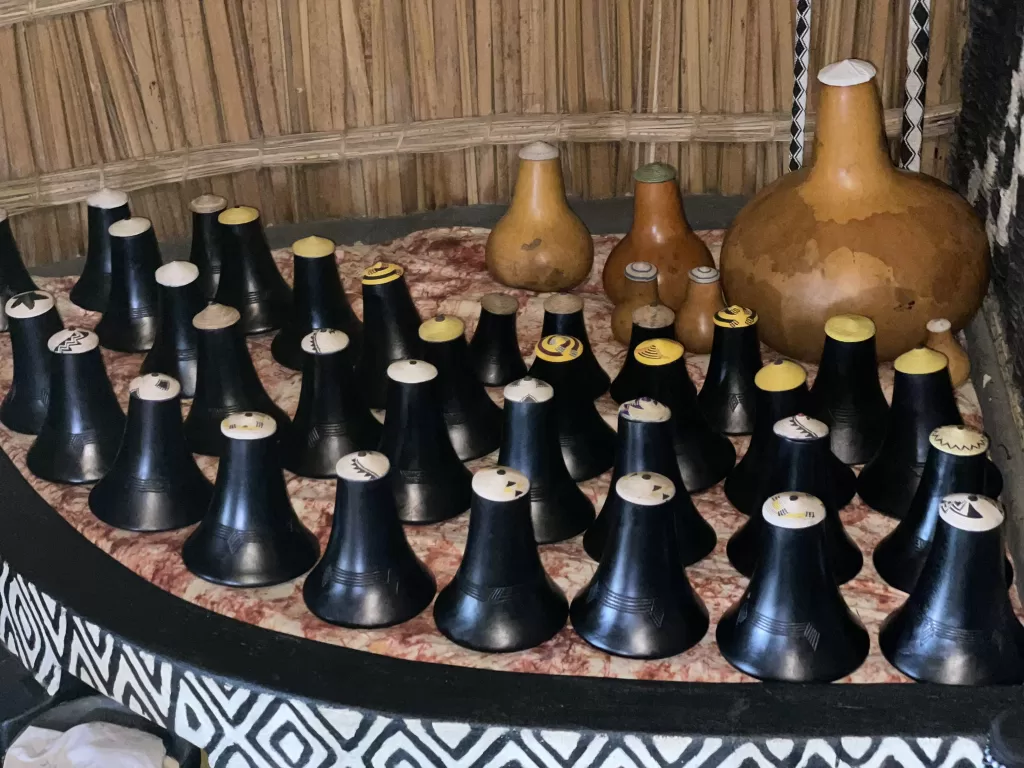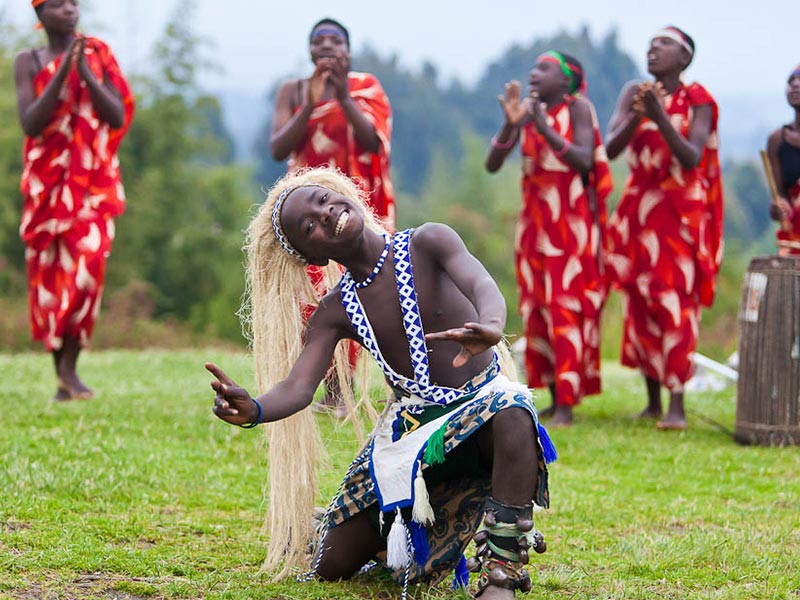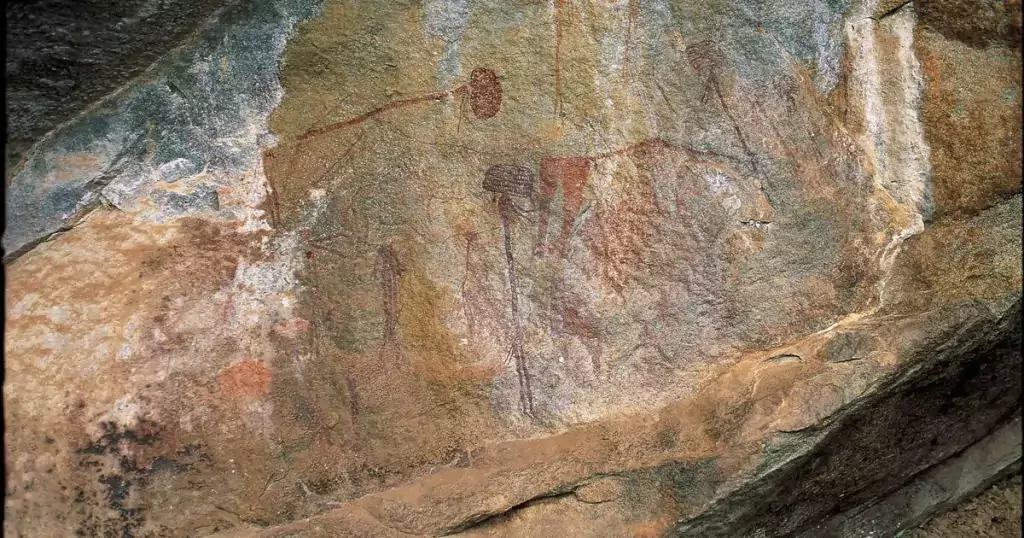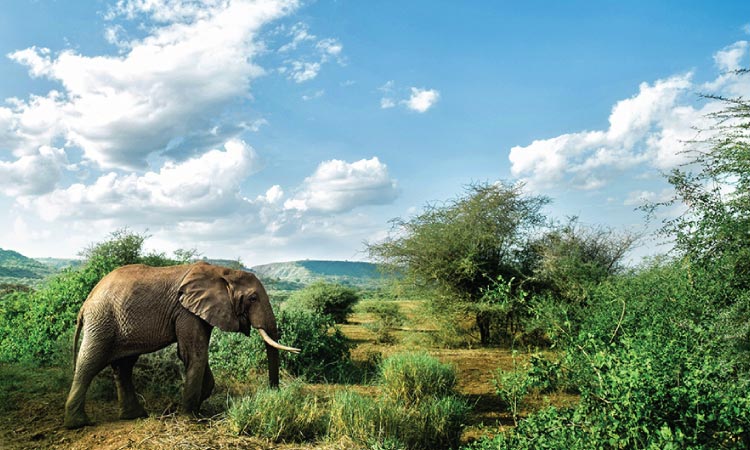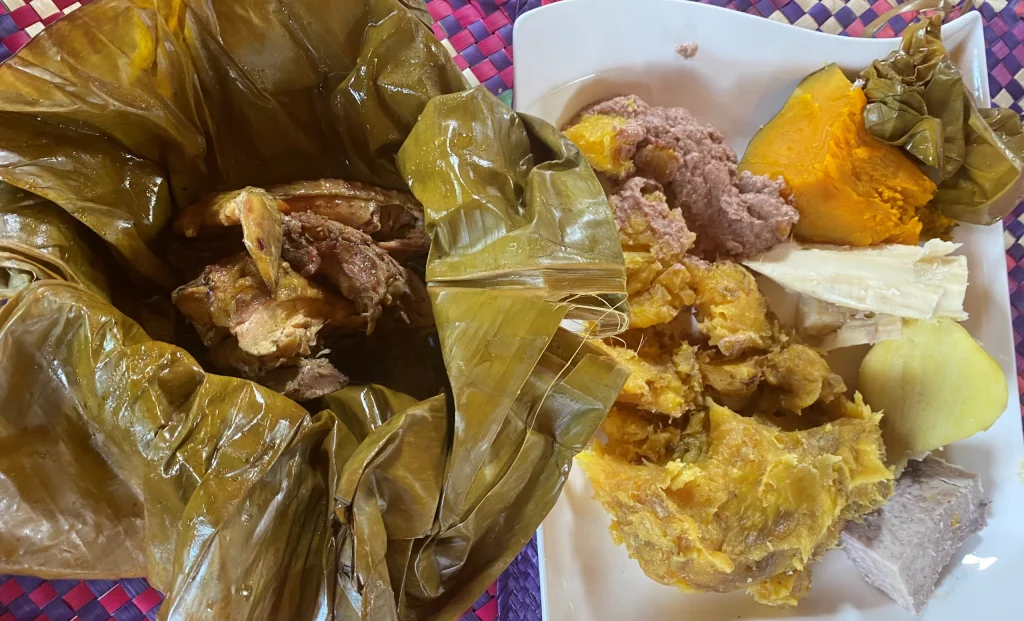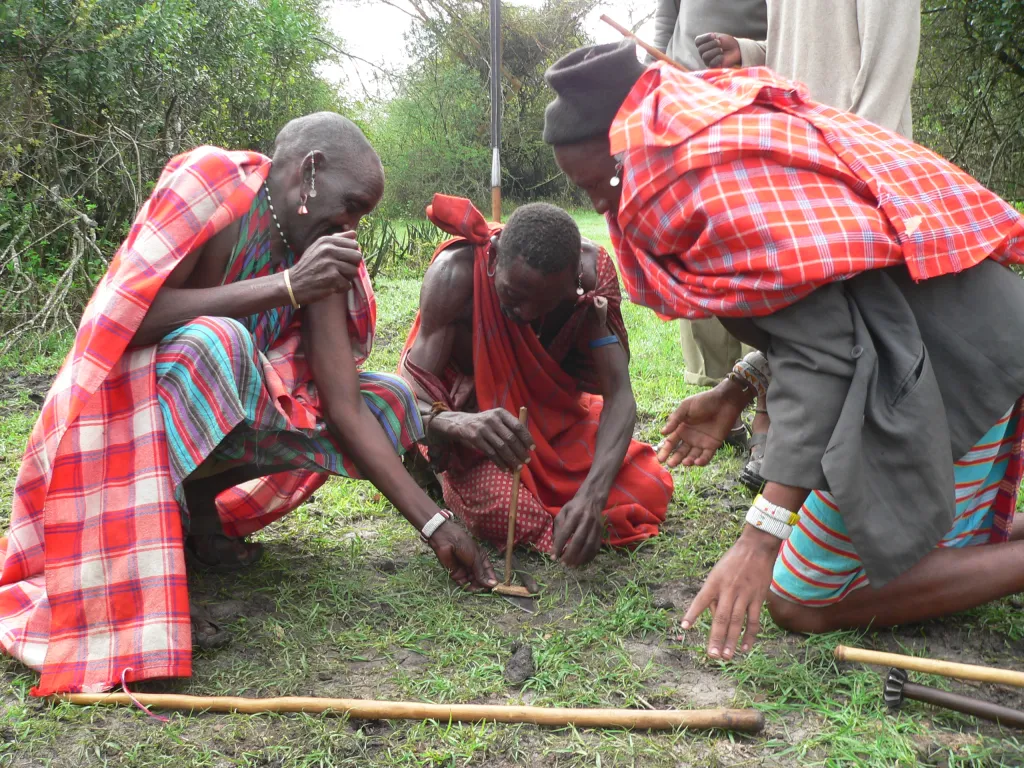Community Based – Cultural Tours
Community Based – Cultural Tours
Community Based – Cultural Tours in East Africa evolve around extraordinary people and strong cultural heritages within Uganda, Kenya, Tanzania, and Rwanda.
Travelers Link Africa will take you to authentic, off-the-beaten-track paradises, where you get to interact with the local communities, stay in their sustainable homestays, and learn more about their livelihood and environment.
East Africa, with its rich tapestry of cultures, breathtaking landscapes, and diverse wildlife, offers a unique and immersive travel experience through community-based cultural tours. These tours provide travelers with the opportunity to delve deep into the heart of local traditions, lifestyles, and customs, fostering a greater understanding and appreciation of the region’s heritage. Learn how the local communities are directly involved in tourism getting socio-economic benefits, and take responsibility for protecting the natural resources, environment, and local culture.
Community Based – Cultural Tours are designed to benefit and empower local communities directly. They create sustainable economic opportunities, help preserve cultural identities, and promote environmental stewardship. The Cultural Tour Experiences provide visitors with an authentic experience of local life.
Travelers Link Africa encourages responsible tourism and encourages travelers to help transform local communities by taking part in a more authentic immersive travel experience.
Get deeper insight into the way of life of various communities, and learn about new cultures, customs, crafts, and cuisines. The experiences will leave you with more perspectives on life, and help promote conservation and sustainability in the world. Come let us Transform Lives through Tours by preserving and promoting local cultural heritage and traditional practices.
Let us foster sustainable and responsible tourism practices and enhance the overall well-being and quality of life for local communities.
Community Based – Cultural Tours in Uganda
Uganda has about 56 tribes with about 9 unique authentic cultures of Acholi, Baganda, Bakiga, Bagisu, Banyankole, Bunyonyo, Iteso, Langi, and Lugbara.
Community Based – Cultural Tours in Uganda often include visits to tribal communities, historical sites, traditional performances, and opportunities for hands-on experiences. You also get to explore culinary delights from the local communities visited.
Highlights of Community Based – Cultural Tours in Uganda
Karamojong Nomadic Lifestyle:
Located in northeastern Uganda, the Karamojong people are known for their pastoral nomadic lifestyle. Visitors can experience their traditional way of life, including cattle herding, crafting traditional artifacts, and participating in cultural dances and ceremonies. Staying in a traditional manyatta (homestead) offers a deep dive into their unique customs and social structures.
Batwa of Bwindi:
The Batwa are one of Uganda’s oldest indigenous groups, residing in the forests around Bwindi Impenetrable National Park. A cultural tour with the Batwa includes forest walks, learning about their hunter-gatherer traditions, medicinal plant knowledge, and storytelling sessions around the campfire. This experience often complements gorilla trekking tours in the area. The Batwa Development Program Initiatives through the Batwa Development Program include Education, Healthcare, Home Building, and Income Generation.
Buganda Kingdom and Kampala City:
In the central region, exploring the Buganda Kingdom provides insights into Uganda’s largest ethnic group. Tours often include visits to the Kasubi Tombs (a UNESCO World Heritage Site), Kabaka’s Palace, and the Wamala Tombs. Engaging with local artisans in Kampala, the bustling capital, reveals the contemporary and historical blend of Buganda culture. Day Cultural Immersions to Ewaffe Cultural Center or Entanda Cultural Center.
Ankole Culture in Western Uganda:
The Ankole people are famous for their long-horned cattle and rich agricultural practices. Visitors can participate in milking cows, learn about traditional cattle-rearing techniques, and taste local delicacies such as ghee and eshabwe. The Igongo Cultural Centre is a great place to learn about the Ankole way of life, their history, and their art.
The Unique Sipi Falls Experience:
In the Eastern part of Uganda, near Mount Elgon, the Sipi Falls area offers a blend of cultural and natural beauty. Community tours here include coffee tours where visitors can follow the coffee production process from bean to cup, traditional dance performances, and homestays with local families. The Bagisu Heritage of Circumcision and Sabiny and the Benet communities close to Mt. Elgon.
Community Based – Cultural Tours in Kenya
In Kenya, there are about 42 tribes of Kenya, the two most commonly experienced cultures are the Maasai and Samburu.Experience Kenya’s Culture with highlights during your safari experience.
Highlights of Community Based – Cultural Tours in Kenya
Maasai Village Visits:
Experience the daily life of the Maasai people by visiting their traditional villages. Participate in activities such as beadwork, spear throwing, and traditional dance. Learn about their cattle-rearing practices and the significance of their traditional attire.
Kisii Soapstone Carving:
Visit the Kisii region, renowned for its soapstone carvings. Observe artisans at work and even try your hand at carving. Look out for unique, handcrafted souvenirs directly from the artisans.
Swahili Culture in Lamu:
Explore the historic town of Lamu, a UNESCO World Heritage site. Discover the Swahili architecture, cuisine, and dhow-building traditions. Engage in cooking classes and learn to prepare traditional Swahili dishes.
Community Based – Cultural Tours in Tanzania
In Tanzania, there are 120 tribes with highlights such as experiencing the Swahili Culture,
Highlights of Community Based – Cultural Tours in Tanzania
Hadzabe Tribe Experience:
Spend time with the Hadzabe, an Indigenous tribe of northern Tanzania living around Lake Eyasi in the central Rift Valley and the neighboring Serengeti Plateau. They are one of the last hunter-gatherer tribes. Gain more insight into their mode of subsistence which involves hunting animals and gathering edible plants. Gain insights into their language, which includes unique click sounds. Men typically hunt and bring home honey to feed their families, while women and children gather fruits, berries, and roots with which to supplement their diet.
Datoga Tribe Experience
The Datoga live in the same region, but are very different from Hadzabe – they are a pastoralist society that is known for its skill as blacksmiths. Hadzabe tended to trade honey and other food for the arrows made by the Datoga. The Datoga tribe is known for their skilled craftsmanship, particularly in metalwork and beadwork. During your visit, you can witness the intricate process of creating traditional jewelry and tools, and even try your hand at crafting your unique piece to take home as a special souvenir.
Chagga Cultural Tour:
Visit the Chagga people on the slopes of Mount Kilimanjaro. The Chagga people are renowned for their exceptional skills in farming, particularly coffee and banana cultivation, which have been the foundation of their sustenance for generations. Explore their traditional homesteads, coffee farms, and underground tunnels. Participate in brewing banana beer and enjoy traditional Chagga cuisine. Witness their architectural brilliance – circular houses crafted from banana leaves and grass that seamlessly blend with the landscape.
Zanzibar Spice Tours – Stone Town:
Discover the spice farms of Zanzibar and learn about the cultivation of cloves, nutmeg, and cinnamon. Taste fresh spices and local fruits, and understand their uses in Swahili cooking. Visit historic Stone Town and explore its rich cultural heritage. The vibrant history is evident in the beautiful buildings, with Omani advent in Zanzibar and others that depict the origins of Swahili architecture fused with a Persian Shirazi influence. Step into the House of Wonders and visit the 17th-century built fort. You could also check out the one-time slave market that Zanzibar was known for.
Community Based – Cultural Tours in Rwanda
There are 3 ethnic cultural groups, the Tutsi with cattle, the Hutu with the land, and the Twa with the forests. The cultural experiences include Kigali Genocide Memorial, Nyamata Genocide Memorial, Ntarama Genocide Memorial, National History Museum (Kandt House Museum), Nyanza Genocide Memorial, and Murambi Genocide Memorial.
Highlights of Community Based – Cultural Tours in Rwanda
Iby’Iwacu Cultural Village: Gorilla Guardians Village
Gorilla Guardians Village, located near Volcanoes National Park in Rwanda, is a remarkable community-based tourism initiative aimed at providing an authentic cultural experience while supporting local communities and conservation efforts. Engage with former poachers who now preserve their cultural heritage. Experience traditional dances, drumming, and storytelling. Learn about traditional medicine and the significance of various plants.
Visit local homes and interact with families to experience daily life in the village. These interactions foster meaningful connections and provide a genuine understanding of the community’s lifestyle and values.
Intore Dance Performances:
Intore dance, also known as the “Dance of the Heroes,” is a traditional Rwandan dance that Originates from the royal courts of Rwanda, this vibrant and energetic dance was historically performed by warriors to celebrate victories and display their prowess and bravery. Witness the Intore dancers, known for their impressive warrior dances. Participate in dance workshops and try on traditional attire.
Imigongo Art in Eastern Rwanda:
Imigongo Art is created through a remarkable process that uses an abundant material—cow dung—and, with the help of artistry and natural dyes, turns it into an object of admiration. Visit villages specializing in Imigongo unique art observe the creation process and create your own Imigongo piece. Learn about the cultural significance of geometric designs and patterns.
Kigali Genocide Memorial
The Kigali Genocide Memorial is arguably the most visited museum in Rwanda, built to honor the memory of approximately 250,000 victims of the Rwandan genocide. The museum is divided into three main sections: one commemorating the children who perished, another dedicated to the adults, and a third focusing on genocides that have occurred in other parts of the world. A visit to this memorial provides a profound understanding of the events leading up to and following the genocide. The Rwandan government hopes the museum will serve as a lasting reminder of the atrocities committed, ensuring that future generations remain vigilant and prevent such cruelty from happening again.
National History Museum ( Kandt House Museum)
It was the first modern building in Rwanda. Kandt was the first governor of Rwanda during German colonial rule. The Museum is divided into three parts – The first exhibition area shows how life was before the country was colonized. The second part describes life during the colonial era while the third part depicts life after Rwanda gained independence. Visit this Museum to check out rare photos of Rwanda and German World War 1 photos. The museum also showcases the wildlife, vegetation, and geological features in the country.
Other options include Banda Cultural Village and Kitabi Cultural Center in Nyungwe Park, Cultural Festivals like the Umuganda” Cleaning the Streets, “Kwita izina” and the gorilla naming ceremony.
The Kings’ Palace in Nyanza, the Presidential Palace Museum 2 km away from Kigali, Urutare Rwa Ngarama, the large rock in Gatsibo, Inema Art Center in Kigali, Bugesera Reconciliation village, Ethnographic Museum in Huye, National Liberation Park Museum, locally known as “Umurindi w’Intwari”.
Experience East Africa Like Never Before: Join a Community Based – Cultural Tours Today!
Head out on a transformative journey that to discover the heart and soul of East Africa through our community based – cultural tours. Immerse yourself in the rich traditions, vibrant cultures, and stunning landscapes of Kenya, Tanzania, and Rwanda.

